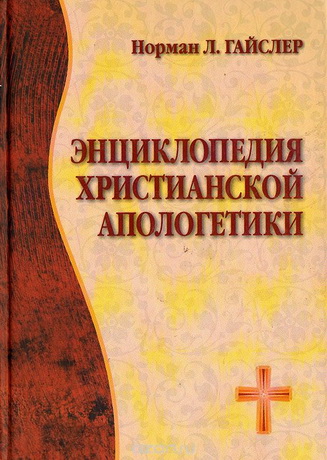
Elwell - Weaver - Bible Interpreters of the Twentieth Century
Walter A. Elwell, J. D. Weaver - Bible Interpreters of the Twentieth Century
Grand Rapids, MI: Baker Book House, 1999. – 445 p.
ISBN 978-0801020735
The history of the church is the history of the church’s interpretation of the Bible. So in order to understand and appreciate contemporary evangelicalism one must become acquainted with modern evangelical biblical interpreters. With that belief in view this volume features thirty-five twentieth-century evangelical scholars. Its purpose is to provide basic information about certain influential evangelical interpreters of the Bible. This includes biographical facts, theological development, scholarly contribution, and personal evaluation.
The reader may be curious to know what criteria were used in making the selections. Before stating the criteria, we need to answer the more fundamental question, What is evangelicalism anyway? This movement is the subject of much study, and no simple answer will do.
Everyone seems to know, in some intuitive kind of way, what evangelicalism is. But when it comes to articulating the essence of this movement, no two definitions are exactly alike. They run the spectrum from the very broad understanding of evangelicalism as synonymous with Protestantism to some very specific formulations that entail acceptance of a lengthy list of precise theological statements. Various middle positions define evangelicalism as commitment to the tenets of historical orthodoxy.
David Bebbington, in an excellent volume titled Evangelicalism in Modern Britain, speaks of the “enormous variation in Evangelicalism over time” in his country. The same holds true for America as well. For along the way considerations in the areas of sociology, economics, philosophy, and even matters of personal style have made a single comprehensive definition of evangelicalism even more elusive.
For all of the complicating factors, however, a feeling remained that evangelicalism could still be roughly defined and understood. The uncertainties obviously did not stop books from being written on the subject! Having to make a decision, we opted for a middle-of-the-road definition.
Too broad a definition would have meant that almost anyone could be included. Too narrow a definition would have meant that certain people would be left out. So rather than enter into a complex and, for our purposes, unnecessary discussion as to the exact nature of evangelicalism, we opted for a definition somewhat more on the broad rather than on the narrow side. That we have included biblical interpreters who by some definitions are not solidly evangelical goes without saying, but our purpose has been to allow for the inclusion of biblical interpreters who have had a marked influence on the evangelical movement and considered themselves evangelical, even if not everyone agreed. In the end, the reader will have to decide.
* * *
Allis, Oswald T.
John H. Skilton
Educator, clergyman, author, and editor, Oswald Thompson Allis was an influential defender of the Christian faith in the twentieth century. His specialty was the Old Testament, and he was an accomplished counterpart to his long-term colleague at Princeton and Westminister Seminaries, J. Gresham Machen, whose chief field of emphasis was the New Testament.
Allis was born on September 9, 1880, in Wallingford, Pennsylvania, where his family was staying temporarily. Their home was in downtown Philadelphia, where Oswald grew up. His father, Oscar Huntington Allis, was a physician of distinction with recognized teaching skills. Not only was he a teacher of medical subjects in hospitals, but he had earlier been a schoolteacher. In fact, Oswald’s mother, Julia Waterbury Thompson, had taken special work in German language and literature under Oscar Allis before they were married. Her father was Oswald Thompson, president judge in the court of common pleas in Philadelphia.
The Allis line in the United States went back to William Allis, who came to Massachusetts in 1630. Galbraith Hall Todd reports in his biography of Oswald Allis that “the hereditary background of Dr. Allis has deep roots in colonial America, especially Puritan New England, and includes many ministers and persons of cultivation, with prestige in the political and educational fields.”
Education
Oswald benefited from his father’s competence as a teacher, for he was home-taught until he was twelve years old. His parents’ interest in German language and literature undoubtedly prepared him for his scholarly use of German in his doctoral studies in Berlin and beyond.
Philadelphia provided a very stimulating background for Allis’s early years. Its variety of historical, cultural, and natural attractions must have nurtured and delighted his mind and spirit. From his home it was an easy walk to Independence Hall and historic Philadelphia; to the Academy of Music, which was quite near; to the University of Pennsylvania and other centers of art, literature, and science; to City Hall and the palatial Wanamaker store; to commercial and manufacturing establishments; to the seemingly endless Fairmount Park, which brought the country right into the city.
Oswald must have been deeply influenced also by the religious environment in which he was brought up. He was reared in a Christian home in a city of churches in a day when churches were well attended. He was baptized and later made profession of faith in Christ in the Presbyterian church. His lifelong concern for Sabbath observance must have been encouraged by the fact that in Philadelphia there was little commercial or public recreational activity on the Lord’s Day.
When Oswald was twelve, he attended the Penn Charter School, and then the following year he went to the Delancey School. In 1897 he entered the University of Pennsylvania, where he gave his chief attention to scientific studies.
The year 1902 brought a dramatic new development in Allis’s life. In that year he entered Princeton Theological Seminary, and came under the influence of some of the great scholars who had brought distinction to that school. In the preface to his last work, The Old Testament: Its Claims and Its Critics, he expresses his indebtedness to the Old Princeton: “It was the privilege of the writer to study at Princeton Seminary under men who held firmly to the great tradition on which that institution was founded, men who not merely believed but gloried in that pervasive supernaturalism which alone can be called truly biblical. And he has felt that in striving to defend the heritage of unfeigned faith in the Holy Scriptures which dwelt in that noble succession of teachers, among whom Joseph Addison Alexander, William Henry Green and Robert Dick Wilson were so eminent, he was repaying in some measure the debt which he owed these mighty men of God.”
The speaker at the opening exercises in 1902 was Robert Dick Wilson, who had studied in Berlin and took as his subject an issue that was being discussed there at the time. The address was entitled “Babylon and Israel: A Comparison of Their Leading Ideas Based upon Their Vocabularies.” This was an effective response to a lecture which Friedrich Delitzsch had given in Berlin in January of 1902. In this lecture, “Babel und Bibel,” Delitzsch had attempted to show that a large number of the beliefs of Israel were derived from Babylon and that the law of Moses was greatly indebted to the code of Hammurabi. Such theories were part of the comparative religions movement that impinged upon the authority of the biblical revelation. They were to cause Allis concern till the end of his life. From his first article to his last book he expresses his heartfelt conviction on the uniqueness and transcendence of the Hebrew and Christian God.
Allis’s career at Princeton seemed to foreshadow his future. Two of the students who entered with him were J. Gresham Machen and Clarence Edward Macartney, who with Allis were to be closely identified with the battle for historic Christianity against the antisupernaturalism which was attacking the Christian world. His close association with Wilson would also continue. Another significant influence was his study of philosophy at nearby Princeton University, which awarded him the master of arts degree in 1907.
Well instructed and prepared to defend the Christian position, Allis went to Berlin, where he was exposed in that renowned center of Semitic studies to viewpoints quite different from his own. He learned firsthand the presuppositions and methods of those with whom he would be contending. His efforts culminated in his receiving the Ph.D. degree in 1913. Paul Woolley has commented on Allis’s success in Germany: “Like many brilliant Americans of the period he pursued his graduate studies in Germany, in Berlin in this instance. Unlike many Americans, he pursued them long enough and diligently enough to receive his doctor’s degree.”
Teaching Career
From 1910 on, Allis served in the Old Testament department of Princeton Seminary, assisting first John D. Davis and later Wilson. In 1914 he was ordained a Presbyterian minister. In 1922 he became an assistant professor of Semitic philology. As a teacher he was respected and admired, as Woolley has testified: “The writer had the high privilege of studying under Allis in Princeton Seminary. He was one of the most effective teachers in that famous faculty of the early twentieth century. Possessed of a piercing mind and of a well-nigh perfect memory, he was ideal for the teaching of Semitic languages. He was also of superb ability in penetrating the weak defenses of much of the higher critical opinion of the day. Even the opposition respected him.” R. Laird Harris similarly afforded high praise to his former mentor: “As a teacher you were not only interested in heads but in hearts. Your earnest personal faith was an encouragement to us all, and your kindly interest in us and your helpfulness on all occasions give us warm recollections of happy days under your tutelage.”
During Allis’s professional years, doctrinal disagreement was sweeping through the Presbyterian Church in the U.S.A. This phase of the widespread fundamentalist-modernist controversy claimed the attention of Allis, Machen, and their friends. A group of conservatives met frequently in the Princeton home of Samuel G. Craig, editor of the Presbyterian and a trustee of Princeton Seminary, to discuss issues and develop strategies. Craig’s son Charles reported that Allis was one of the more influential members of the group. He likened his father to the quarterback or perhaps the coach, Machen to a brilliant halfback, and Allis to a line coach “who was not only a specialist in his field, but one whose overall wisdom played an important role in the team’s success.”
Brilliant and worthy though Craig’s team was, it was unable to save Princeton Seminary. In 1929 the seminary was reorganized in the interests of a more liberal doctrinal policy. Allis saw clearly that another seminary should be formed to keep the cherished witness of Old Princeton alive. Even before Machen, who was considering another possible move, he was persuaded that positive action should be taken to establish a successor to Old Princeton right away. With Machen’s well-considered concurrence and that of others, strenuous efforts were undertaken that resulted in the establishment of Westminster Theological Seminary in Philadelphia in September of that very year. Allis worked assiduously toward this end. So great was his devotion to the cause that he gave not only of himself but of his resources for its success. At personal loss, he rented to the new seminary a building in downtown Philadelphia for the token sum of one dollar a year.
Regrettably, after serving till 1936 in the new seminary, Allis felt constrained to resign. Disagreements over ecclesiastical strategy and vision caused a separation between men who had worked together valiantly up to this point. They were friends and conscientious warriors, and one wishes that they had been able to continue to battle side by side against unbelief.
Writings
However sad the division was, it did free Allis to continue his notable work of writing and editing. His productivity was enormous, and he exerted a powerful influence for the faith at home and abroad. His bibliography lists ten full-length books (including his dissertation in German and an unpublished manuscript on dispensationalism). Prominent among these volumes is The Five Books of Moses, a classic vindication of the Mosaic authorship of the Pentateuch. It was published in 1943, and it was still in print more than fifty years later, continuing to expose the errors of the negative, divisive criticism concerning the books of Moses. R. Laird Harris testified in his tribute to Allis: “I have used your Five Books of Moses with many classes as textbook and resource book and have found that students have been satisfied, as I have been, with the correctness of your conclusions and the value of your defense of Scripture.” Similarly, W. J. Grier of Northern Ireland noted that the book “met the needs of students in British theological colleges who were contending against prevailing critical views.”
Not everyone, however, had unqualified praise for the volume. William F. Albright reviewed it not without some appreciation, but with strictures. Allis, although respectful of Albright, had taken issue in The Five Books of Moses with a number of his views. It would have been helpful if these two front-ranking scholars could have confronted one another directly. Also to be noted is that despite the great usefulness of The Five Books of Moses for many, it of course has not eliminated all the entrenched allegiance to the viewpoint that it opposes.
God Spake by Moses (1958) is designedly a more popular type of work than The Five Books of Moses. It is a brief running exposition of the Pentateuch. The author’s condensed comments on the text and on some of its problems of interpretation give readers the benefit of his long years of study.
In The Unity of Isaiah (1950) Allis brings his learning and sharpness of intellect to bear on the allegations that the Book of Isaiah is the work of more than one author writing at different times. A major dividing point between Allis and liberal critics is his frank acceptance of the supernatural. He firmly believes that prophecy could be truly predictive. He accepts the references to Cyrus by name in 44:28 and 45:1 as true prophecy written by Isaiah himself. They are not to be explained as written after Cyrus’s birth. In this book Allis endeavors to speak in Isaiah’s behalf as The Five Books of Moses did for Moses.
Prophecy and the Church (1945) describes itself on its title page as “an examination of the claim of dispensationalists that the Christian church is a mystery parenthesis which interrupts the fulfilment to Israel of the kingdom prophecies in the Old Testament.” Allis, well aware of the gravity of the critics’ attack on the Bible, recognized how important it is for Christians to stand together against destructive forces from without. He feared that the dispensationalism of his day was separating Christians and weakening their power to fight unitedly against their real enemies. In an irenic spirit Allis seeks to show from Scriptures that the dispensationalist construction as summarized on his title page is wrong because it does not recognize the typical and preparatory character of the Old Testament dispensation. The reaction to the book was divided. In some quarters it was well received and influential; in others the response was negative. This divided reception convinced Allis all the more of the vital importance of the subject.
Another area in which Allis drew on his vast learning was the evaluation of modern versions of the Bible. Ever since 1881, the year in which the New Testament portion of the Revised Version appeared, there had been a ceaseless flow of new translations of the New Testament. Throughout Allis’s lifetime at least one new English version or revision of a previous version of the New Testament (or much of it) appeared on the average every year. (New translations of the whole Bible were also issued, but less frequently.) This unceasing parade of versions so concerned him that he published various articles and three full-length critiques. He was greatly desirous that Christians who could not read the Bible in its original languages have a dependable, accurate version in their own language. He concluded that “some of the new translations, especially those which are described as ‘modern speech’ versions, are paraphrase rather than translation; and with a view to clarifying or simplifying the meaning of the text, they at times introduce into it meanings which are at least questionable. Sometimes they even change the text to bring out of it a meaning which is not clearly there.”
The Revised Standard Version of the New Testament is given a mixed review: “Considered as a ‘modern speech’ version, the rsv has this in its favor, that it is in general more conservative than its principal competitors. But it does not differ essentially from them. It shares their virtues and their defects. By dealing freely with the text, and substituting interpretive paraphrase for accurate translation, it is able at times to throw light on difficult passages and to produce a more ‘understandable’ and ‘pleasurable’ rendering than AV [the Authorized or King James Version] or RV [the Revised Version].” In addition, Allis declares that it is erroneous to call the Revised Standard Version a revision: “For in rsv the work of revision has been carried to such an extreme that the result is much more a new translation than a revision, and A New Translation is what the Revised Standard Version should be called.”
The Revised Standard Version of the Old Testament is regarded as even less trustworthy than the New Testament. It differs radically in diction and style from the Authorized Version. Indeed, it “is not merely a ‘modern speech’ but a ‘modernist’ or ‘higher critical’ revision of the version of 1611… . It makes many changes in the text of the Bible, either on the authority of the ancient versions or simply on the basis of conjecture. And its marginal notes are at times inaccurate, inadequate, and misleading; and they tend quite definitely to undermine confidence in the authority and trustworthiness of the Bible.”
Finally, as for the New Testament portion of the New English Bible, Allis concluded that it is so paraphrastic and interpretative that it is not a faithful translation of the text.
In his valedictory volume, The Old Testament: Its Claims and Its Critics (1972), Allis expresses the convictions, the conclusions, and the loyalties of a lifetime of distinguished service. It is the witness of a faithful believer to the all-glorious, transcendent God of the Bible. It is basically made up of the Payton Lectures that Allis delivered at Fuller Theological Seminary in 1952, but with substantial enlargement, including the addition of a whole new chapter on chronology. The chapter headings provide a handy outline of the book: “The Old Testament from Within—Its Facts and Its Doctrines”; “The Old Testament from Within—Its Literary Form”; “The Old Testament from Without” (i.e., its historical setting and background); “The Old Testament and Its Critics”; “Comparing the Incomparable”; and “Chronology.” In this book we are reminded of Allis’s Princeton heritage, of Wilson’s address in the opening exercises of 1902, and of the glory of the biblical supernaturalism in which Allis rejoiced. Here we have a Christian manifesto exalting the perfections of the one, living, and true God of the Bible.
Allis’s literary productivity was not limited to the writing of books. The bibliographical list of his articles, reviews, and pamphlets covers almost eight pages in small print. And some of its titles represent a series of articles rather than just one article. Even in the stressful years when the battle for Princeton Seminary was producing much concern and claiming much time, Allis continued to write on various subjects. In 1925 he published seven articles, six reviews, and one pamphlet; in 1926, three articles and five reviews; in 1927, two articles and eleven reviews; in 1928, two articles and nine reviews; in 1929, the year of the departure from Princeton and the establishment of Westminster Seminary, three articles and eight reviews.
Covering a variety of subjects, the articles, reviews, and pamphlets are a tribute to the breadth of the author’s competence. The first article that Allis published was “The Transcendence of Jehovah, God of Israel: Isaiah 44:24–28.” His bibliographer comments: “It may not be amiss for the bibliographer to note Dr. Allis’s own judgment that this, his first contribution to biblical studies, was his most important.” And Wilbur Smith was highly appreciative of a review that required exceptional knowledge of the Bible: “As an illustration of his loyalty to the great basic truths of the Christian faith, one need only call attention to his review some years ago of the second edition (1926) of the Standard Bible Dictionary, extending to over 30,000 words, probably the most important examination of any Bible dictionary in our language published in the last fifty years… . Not only was Dr. Allis scholastically equipped for this kind of work, but he also was convinced that he had a responsibility to use this knowledge, and his faith in the Word of God, in warning his generation of the danger of liberal tendencies in Biblical interpretation which result in the undermining of the faith of many.”
Allis’s contribution to Christian literature may already seem overwhelming, but there is more to report. He served as editor of the Princeton Theological Review from 1918 to 1929. Paul Woolley, who spent many years as the editor of a similar journal, the Westminster Theological Journal, has much praise for and understanding of Allis’s achievement as an editor:
A virtue which often goes unsung among the more flashy achievements of life is the quality of long and constant application to an unexciting but vital task. For many years, amidst very unsatisfactory degrees of support from some of his colleagues, Allis edited for the Princeton faculty the Princeton Theological Review. It carried on the work that Charles Hodge had begun with the Biblical Repertory in 1825. The Review did not cater to the cheap and easy conclusions which might be tempting, but represented solid, effective scholarship. A product of this character demands a great amount of slogging attention to detail. No one demonstrates his thanks, but without this painful work the results of more dashing forays into the problems of the field are weakened and, sometimes, nullified. This is the type of effort upon which Allis spent countless hours. The brilliant books which he produced have been appreciated on all sides. But who thinks of the hours devoted to the Review? 21
And in addition to serving as editor of the Review, Allis was also a contributing editor of the original Christianity Today (1938–48) and an associate editor of the Evangelical Quarterly (1929–73).
One further comment about Allis’s work as a writer. Charles Craig of the Presbyterian and Reformed Publishing Company, which produced Allis’s books, reports that the manuscripts submitted by Allis were in virtually impeccable condition: “Editing was superfluous. Misplaced commas or misspelled words were absent, and even typographical errors were practically non-existent. Doubtless his years as the distinguished editor of the Princeton Theological Review sharpened this achievement, but the condition of his manuscripts as well as their content reflected his zeal for perfection.” Craig also suggests that Allis’s wife might have helped in this achievement. In 1927 Allis had married the talented Ruth Robinson of Princeton. They were given to hospitality and made delightful hosts, as seminary students could attest. Two daughters came from their union, Julia Thompson, who became the wife of Walter Olof Seaborg, and Constance Ruth, who married J. Milton Neale II.
Allis died on January 12, 1973, a prince and a great man in Israel. A volume of Old Testament studies to be dedicated to him was in its final stages of preparation at the time. In God’s good providence Allis had been shown a copy of the tentative table of contents and the first installment of the galley proofs shortly before he left us for the presence of the Lord. This volume, The Law and the Prophets, as he surely would have approved, was then dedicated and presented to one who had supported him through the years and who had contributed inexpressibly much to his long and fruitful life—Mrs. Oswald Thompson Allis. Although the tribute intended for Allis was regrettably late, Hampden-Sydney College as far back as 1927 had appropriately recognized his Christian character and service by bestowing on him a degree that he truly merited, the honorary degree of doctor of divinity.
Primary Sources
- Allis, Oswald T. The Five Books of Moses. Philadelphia: Presbyterian and Reformed, 1943.
- ———. God Spake by Moses: An Exposition of the Pentateuch. Nutley, N.J.: Presbyterian and Reformed, 1958.
- ———. The New English Bible, the New Testament of 1961: A Comparative Study. Philadelphia: Presbyterian and Reformed, 1963.
- ———. The Old Testament: Its Claims and Its Critics. Nutley, N.J.: Presbyterian and Reformed, 1972.
- ———. Prophecy and the Church. Philadelphia: Presbyterian and Reformed, 1945.
- ———. Revised Version or Revised Bible? A Critique of the Revised Standard Version of the Old Testament (1952). Philadelphia: Presbyterian and Reformed, 1953.
- ———. Revision or New Translation? “The Revised Standard Version of 1946”: A Comparative Study. Philadelphia: Presbyterian and Reformed, 1948.
- ———. The Unity of Isaiah. Philadelphia: Presbyterian and Reformed, 1950.
Secondary Source
- The Law and the Prophets: Old Testament Studies Prepared in Honor of Oswald Thompson Allis. Edited by John H. Skilton. Nutley, N.J.: Presbyterian and Reformed, 1974.
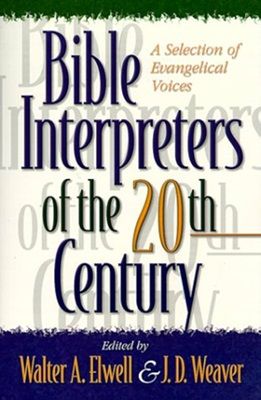
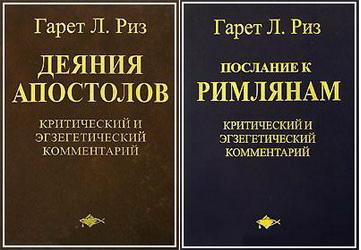

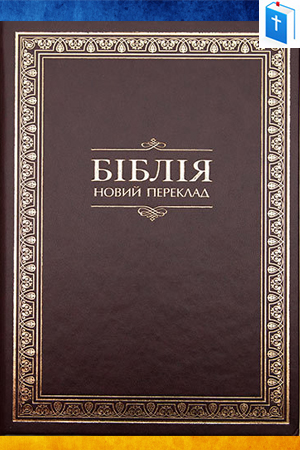
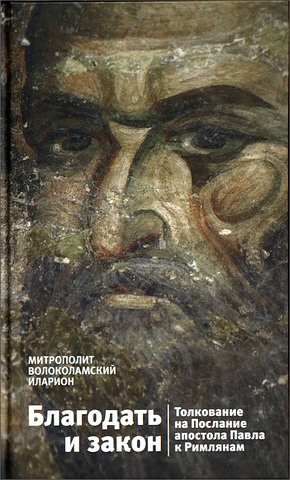
Комментарии
Пока нет комментариев. Будьте первым!